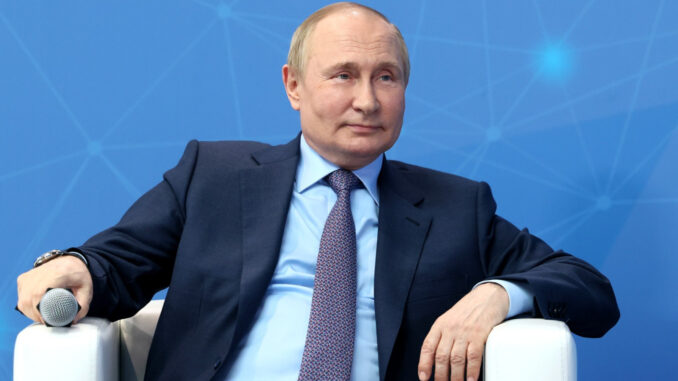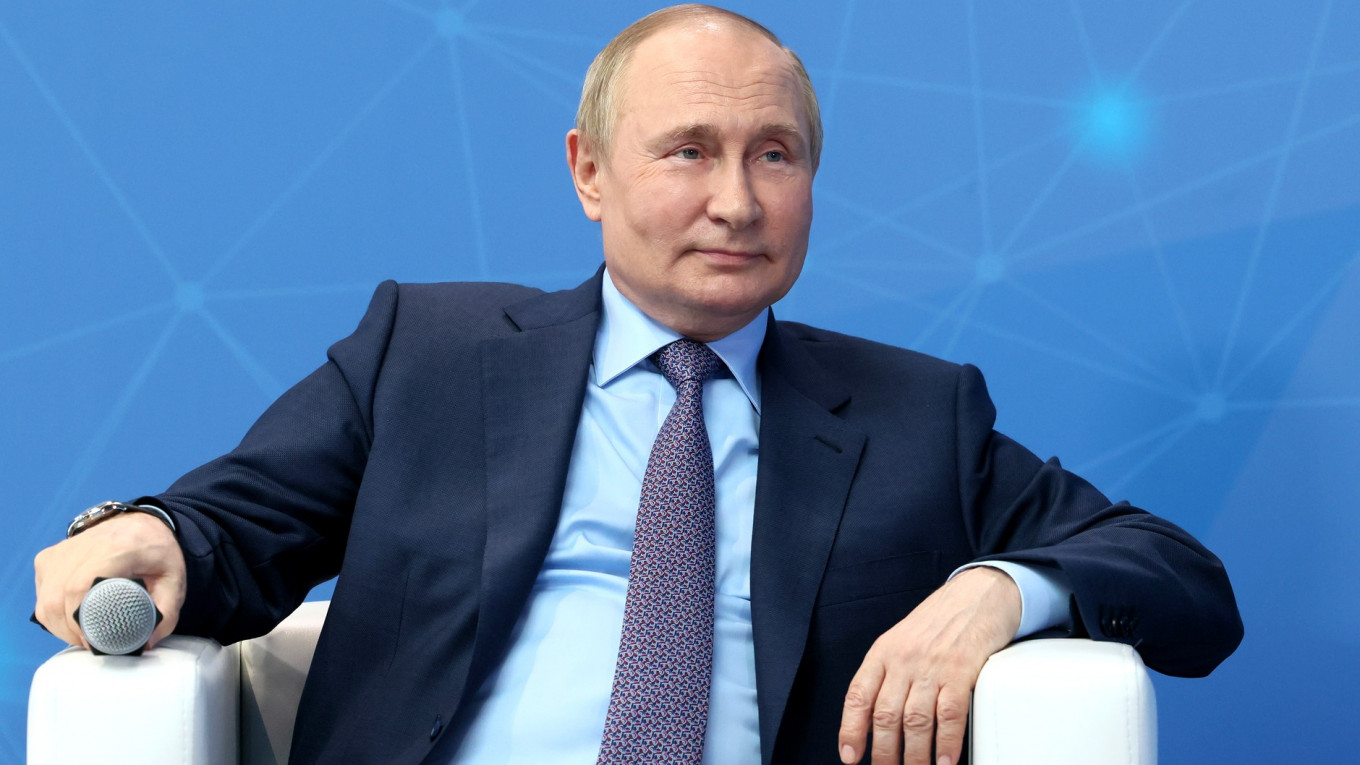
Russian president Vladimir Putin is launching Russia’s own anti woke version of the Eurovision Song Contest.
The Russian leader ordered the revival of the Soviet-era alternative to the Eurovision song contest after Russia was banned from participating in the competition. He says it will help counter what ‘the decadence of modern Western culture’.

BYPASS THE CENSORS
Sign up to get unfiltered news delivered straight to your inbox.
You can unsubscribe any time. By subscribing you agree to our Terms of Use
Latest Video
Russian senator Liliya Gumerova told state media that the Intervision contest would “promote real music” and “not fake values that are alien to any normal person”.
She also slammed Eurovision for including bearded trans performer Conchita Wurst in the contest, and the non-binary singer Nemo who won last year.
The contest will take place later this year with almost 20 countries ready to take part.

The Guardian reports: The Russian leader signed a decree on Monday instructing officials to revive the Intervision song contest in Moscow this year with the aim of “developing international cultural and humanitarian cooperation”.
The presidential envoy Mikhail Shvydkoi previously stated that “almost 20 countries” had agreed to participate, including Brazil, Cuba, India, China and other “friendly” nations. Shvydkoi said the competition would take place in autumn.
Russia was banned from competing in Eurovision in 2022 after its invasion of Ukraine.
Russia’s national broadcasters subsequently suspended their memberships of the European Broadcasting Union, which organises the show, preventing them from taking part in future contests.
Putin appointed several senior officials to organise the Intervision competition, including the deputy prime minister, Dmitry Chernyshenko, who was named as the head of the organising committee.
Launched under the former Soviet leader Leonid Brezhnev, the original Intervision contest was held sporadically from the 1960s to the 1980s as the eastern bloc’s response to Eurovision. The contest, held in Poland and what was then Czechoslovakia, also drew participation from non-European countries, including Moscow’s communist allies such as Cuba. It was widely viewed as a symbol of openness after the Soviet dictator Joseph Stalin’s death and celebrated artistic traditions across the bloc.
Finland, which sought to maintain neutrality during the cold war, was one of the few countries to participate in Eurovision and Intervision by entering artists in each competition.
Russia first competed in Eurovision in 1994, just a few years after the fall of the Soviet Union, marking the beginning of a long and complex relationship with the competition.
Throughout the 2000s, Eurovision became one of the country’s most highly anticipated events, with Moscow frequently sending some of its biggest stars.

